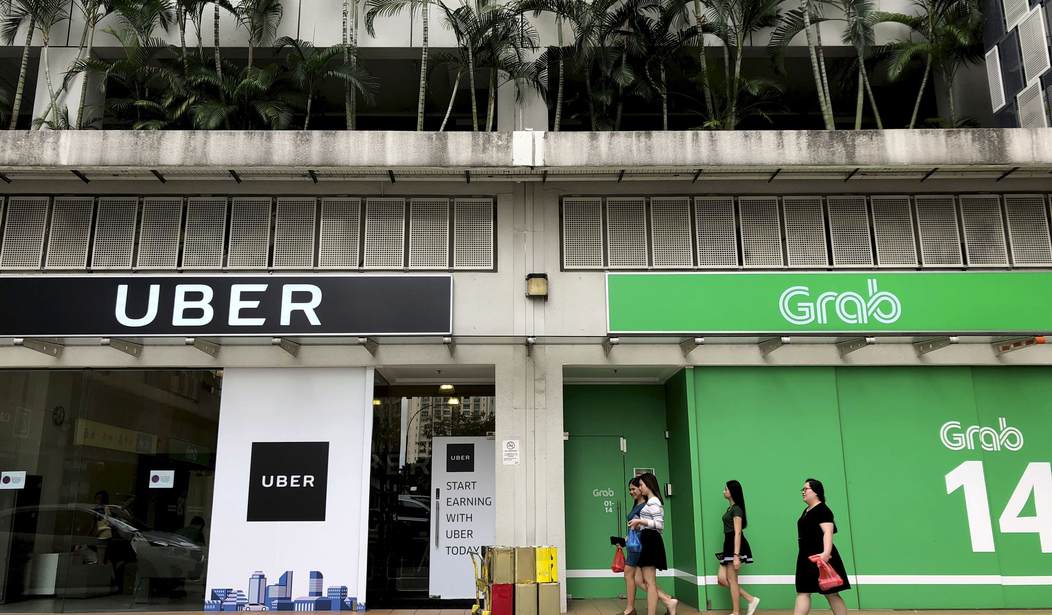Congratulations are in order for the radical "defund the police" Minneapolis city council that passed a minimum wage law for rideshare drivers that drove Lyft and Uber out of town.
The city council passed an ordinance that required rideshare companies to pay drivers at least $1.40 per mile, and 51-cents per minute on rides through Minneapolis city limits. Council members who supported the measure say it would pay drivers close to the city's $15.57 minimum wage.
Some drivers rejoiced.
“Getting the fair pay and safe work, that’s what we’ve been asking for,” declared Said Mohamed, a rideshare driver for three years. “It’s going on all around the country, not just Minneapolis.”
Now, Mr. Mohamed is out of a job. After the council overrode Mayor Jacob Frey's veto of the rideshare bill, Uber and Lyft announced they would no longer operate in Minneapolis after May 1.
“We support a minimum earning standard for drivers, but it should be done in an honest way that keeps the service affordable for riders,” said a Lyft spokesperson. Lyft called the measure "deeply flawed" and that the bill makes operating in the city "unsustainable."
Uber's statement was a little more direct. They said that it’s “disappointed the council chose to ignore the data and kick Uber out of the Twin Cities, putting 10,000 people out of work and leaving many stranded.”
The Minneapolis business community is at a loss figuring out what to do next.
“Uber and Lyft have been clear. They’re going to pull out all their operations,” says Adam Duininck, President & CEO of the Minneapolis Downtown Council. “It has a potential for a huge disruption. There’s no company that’s ready to step in and do what Uber and Lyft does. They’re not prepared to do that today.”
CNN:
Mayor Jacob Frey, a Democrat, said he supports a minimum wage for rideshare drivers but opposed the ordinance because it didn’t factor in a Minnesota state study that analyzed how much drivers should be paid.
“Everyone wants to see Uber and Lyft drivers get paid more. But getting a raise doesn’t do a whole lot of good if you lose your job,” Frey said, according to CNN affiliate WCCO-TV. “There will be a massive impact felt by our region.”
Mr. Mohamed isn't concerned about Uber and Lyft leaving the city.
“There are other companies that are out there, willing to take over,” says Said Mohamed, who’s driven for both Uber and Lyft. “Multiple drivers here have already downloaded the app of other companies.”
I'm sure there are other rideshare companies who will move into Minneapolis. But in an industry that depends on huge numbers of drivers to cover all calls, other rideshare companies don't have the infrastructure to compete.
Lyft previously told CNN that the bill would be detrimental to drivers, who would ultimately earn less, “because prices could double and only the most wealthy could still afford a ride.”
In 2020, California passed Proposition 22, which was backed by more than $200 million from the most influential gig economy companies. The controversial ballot measure allows Uber and Lyft to treat drivers as independent contractors rather than employees. While it was a major win for Uber and Lyft, it did include a minimum earnings guarantee (excluding the time a driver spends waiting for a gig).
Democrats are destroying the gig economy piece by piece. It's painful to watch. Democrats can't stand the idea of independent contractors. They believe that because these gig workers don't get health insurance, or unemployment, or any of the other goodies given to regular employees, they ware deprived and exploited.
The problem with that analysis is that independent contractors choose to work without those benefits. Gig work is one of the last outposts of capitalism in the U.S. It's generally true that the harder you work, the more money you make. You can work whenever you want. There's also a certain amount of freedom in how much you can charge your customer.
Democrats can't stand this kind of freedom. There's no chance to unionize, no chance to go on strike. So naturally, the gig economy must die.










